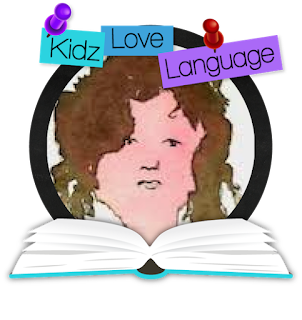I have frequently performed assessments on kids who seem to do ok on standardized tests, which mostly assess at the word or sentence levels. But when asked to formulate entire paragraphs; to tell about an experience or re-tell a story or make up a store, their difficulties really stand out.
This problem is exacerbated in AAC users, whose language skills are often impaired or delayed, often from a lack of appropriate instruction.
This inability to organize language into meaningful narratives impacts children in social and academic contexts alike. Narratives are at the heart of our conversations, our classroom performance, and our ability to tell others about…. well, anything.
There have been numerous studies of children’s abilities to construct narratives, and researchers like Carol Westby, Nickola Wolf Nelson, Ron and Sandra Gillam, and Maryellen Rooney Moreau, among others, have given us a wealth of information about how children develop this skill and the steps they need to take.
Narrative discourse is defined as, “at least two utterances produced in a temporal order about an event or experience (Hughes, et al, 1997). Students with language disorders tend to miss the ability to integrate background knowledge with pragmatics - or social language - to formulate an organized recounting.
Moreau has defined narrative as a story that involves telling or re-telling events and experiences (Lafontaine & Moreau 2014).
And Jerome Bruner (1990) called narrative skills “One of the most ubiquitous and powerful discourse forms in human communication…” He went on to name the 4 areas of grammar critical to narrative production:
- A means for emphasizing actions towards obtaining a goal,
- A sequential order should be established and maintained; so that events are stated in a linear way
- Sensitivity to what forms and patterns of language are acceptable
- Containing a narrator’s perspective or ‘voice.’
One study (D. Boudreau, 2008) looked at narrative skills in academic settings and cited studies showing that
- students whose narrative skills are greater than their syntax skills performed better than those who had age-appropriate syntactic skills but poorer narrative abilities or tasks for story comprehension and re-telling,
- the single best predictor of students’ future need for remediation or special education or retention was their earlier performance on tasks of narrative abilities,
- that narrative abilities in Kindergarten predict students’ vocabulary and reading comprehension skills in 7th grade
- that there is a correlation between students’ narrative skills using wordless picture books and their Math skills in school,
- and more evidence for the role of narrative discourse skills.
The bottom line, says Boudreau, is that discourse abilities are crucial in academic success, and, in order to make students with this profile successful, we need to provide remediation in both comprehension and production of narratives.
If you want to learn more about narrative skills assessment and development, Gillam and Gillam have written some terrific articles and presentations. You can grab some amazing CEUs through MedBridge’s courses on narratives by Sandra Gillam here.
As well as this great course offering from Sean Sweeney: Tell me a story: Targeting narrative skills through the alignment of methodology and technology
And if you’re looking for some resources to help you work with narrative skills, try these I’ve created:
Boudreau, D. (2008) Forword. Topics in Language Disorders, 28 (2), 91-92
Catts,H et al (1999). Language basis of reading and reading disabilities: Evidence from a longitudinal investigation. Scientific Studies of Reading, 3(4), 331-361.
Gillam, R, & Pearson, N. (2003)The Test of Narrative Language. Austin, Tx: Pro-Ed.
Johnston, J. (1982). Narratives: A new look at communication problems in older language-disordered children. Language, Speech, and Hearing Services in the Schools, 13, 144-155.
Johnston, J. (2008). Narratives: Twenty-five years later. Topics in Language Disorders, 28 (2), 93-98





ReplyDeleteThank you for posting such great article it helped me a lot.
regards:
Learn French Online